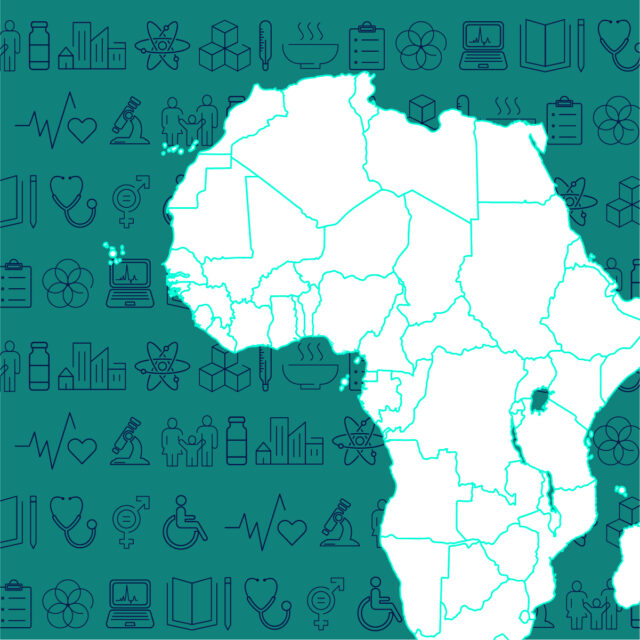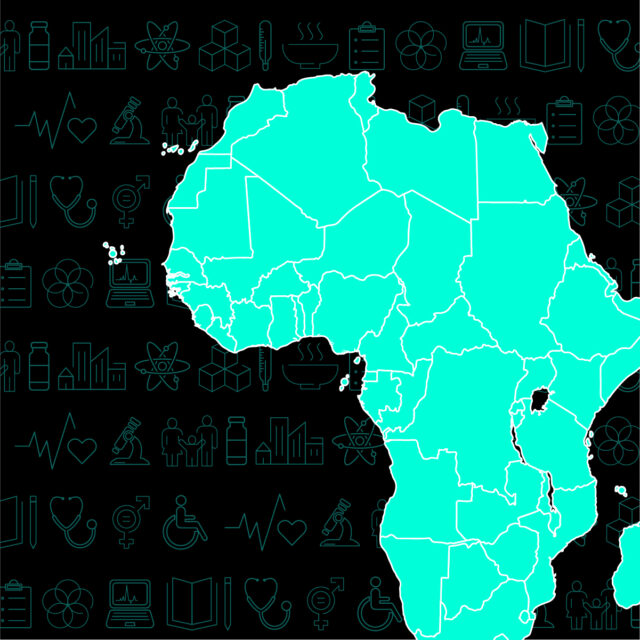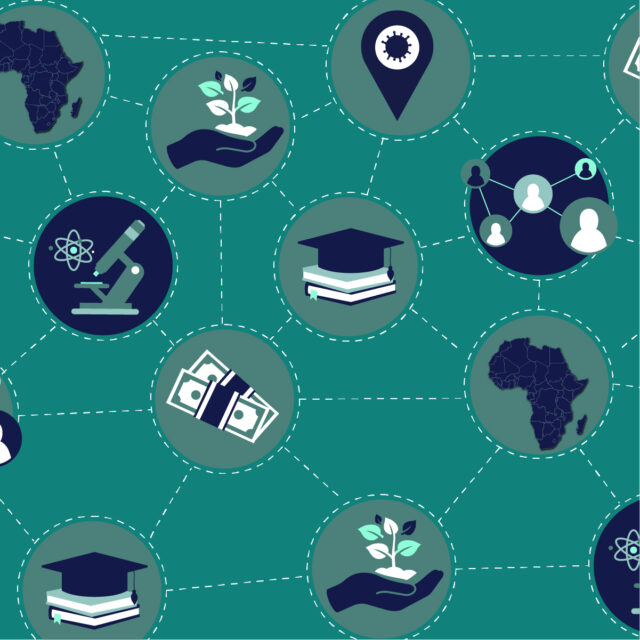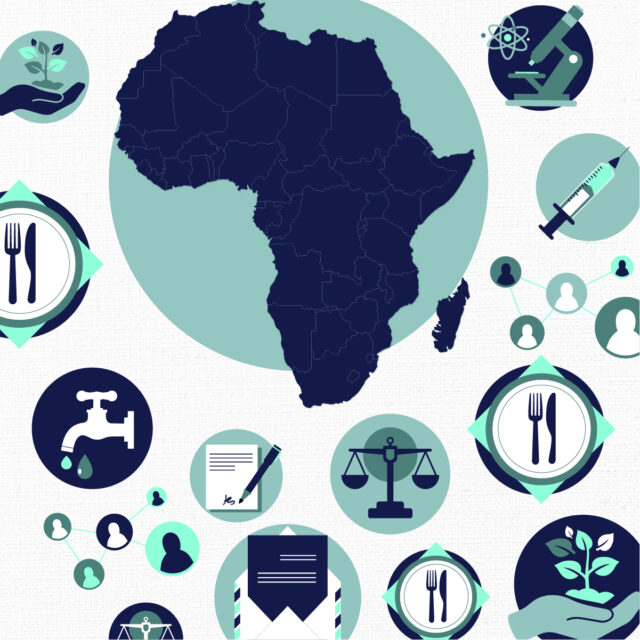Top news
Squeezing the middle: The global middle class shrank by 150 million people in 2020 as the pandemic ravaged the global economy, the first decline in nearly three decades. South Asia and sub-Saharan Africa were hit the hardest. 1 in 3 Nigerians is out of work and the number of fully employed has decreased by half since 2015, a trend exacerbated by the pandemic. One-third of employed Nigerians live in extreme poverty, according to ONE’s Employment Dashboard.
Temporary infusion? The IMF and World Bank’s recent enthusiasm for government spending has some suggesting a return to Keynesianism and a new Washington Consensus, but is this a reversal of orthodoxy or an aberration? One data point to keep an eye on: government expenditures in the 80 countries with IMF programs are projected to decline to below pre-pandemic levels in 2023.
Stepping up: Official Development Assistance hit a new record in 2020, increasing by 3.5% to $161 billion, thanks in part to donor contributions aimed at combating COVID-19. While very welcome news, to put that into perspective, it amounts to only 1% of pandemic stimulus plans.
More good news: A new study suggests that the more contagious COVID-19 variant first detected in the UK does not lead to more severe disease. The COVAX Facility has delivered more than 38 million doses of COVID-19 vaccines to over 100 countries across six continents in the 42 days since its first international delivery to Ghana in February. COVAX expects to deliver at least 2 billion doses of vaccines in 2021.
Slippery slope: The US hit pause on the use of the Johnson & Johnson vaccine to investigate a rare blood clotting disorder potentially associated with the vaccine. Regulatory bodies are doing their job to ensure vaccines are safe (love to see it). But public communication around this standard practice is fraught; the risk of increasing vaccine hesitancy likely outweighs the (very small) risk the vaccine may pose.
Grab your sled: Australia decided not to purchase the J&J vaccine due to its similarities to the AstraZeneca vaccine, which has been linked to rare cases of blood clotting. Nigeria has struggled to find enough willing arms to use the first 4 million doses of AstraZeneca vaccine received six weeks ago due to vaccine and virus skepticism.
Whitewash: A senior Chinese official said that the country’s vaccines may need to be administered in greater doses or in combination with other vaccines, raising concerns they may be less effective than originally touted. More than 60 countries have approved the Chinese vaccines, including many low- and lower-middle income countries. Last week, Egypt and China announced a deal to manufacture 20-60 million doses of the Chinese vaccine Sinovac annually in Egypt.
Rinse, repeat: This week’s tough vaccine news arrived alongside a dire warning from the WHO about exponentially rising COVID-19 cases. 4.4 million new cases were reported in the last week, the seventh consecutive weekly increase. A number of African countries, including Ethiopia, Kenya, and Madagascar, are experiencing second or third waves of COVID cases, according to ONE’s Africa Tracker.
Harsh dose of reality: Roughly 6% of people globally have received at least one COVID vaccine dose. But that figure hides huge disparities in vaccine equity: high-income countries account for roughly half of all vaccine doses worldwide, compared to just 0.2% for low-income countries. Less than 1% of the African continent’s 1.3 billion people have received at least one dose. African countries are struggling to vaccinate frontline healthcare workers. Sudan’s medical community is pleading for additional doses to prevent the deaths of more doctors.
Hoarder harassment: 175 former world leaders and Nobel laureates are calling on the US to take “urgent action” to suspend intellectual property rights for COVID-19 vaccines. World Bank President David Malpass is urging richer countries to donate extra vaccines to lower-income countries, as are the Mo Ibrahim Foundation’s board members, Ibrahim Prize Committee and Prize Laureates. High-income countries have secured 70% of the 8.8 billion confirmed vaccine purchases, compared to 17% for low- and lower-middle income countries and 13% for global entities, including COVAX.
Time to self-medicate: African leaders are calling for the continent to invest in vaccine and PPE manufacturing to combat COVID-19 and future health emergencies, after more than a year spent struggling to secure needed COVID-19 tests, vaccines, and PPE from abroad. To that end, the African Union and CEPI announced a joint effort to boost vaccine R&D and manufacturing in Africa. Africa currently imports as much as 70% of its pharmaceutical needs.
WANTED: Leadership: Former UK Prime Minister Gordon Brown is urging the G7 to push for global COVID-19 vaccination, including setting up and contributing to sustainable financing mechanisms needed to pay the $30 billion annual price tag. Former US Treasury Secretary Larry Summers predicts we’re going to have a COVID-like threat “every decade or so,” so we should prepare to do better next time. +1 to that.
Origin story: A group of international scientists and researchers are calling for a new investigation into the origins of COVID-19, accusing a joint China-WHO study of being tainted by politics and China’s refusal to release data, an allegation also leveled by the WHO and US Secretary of State Anthony Blinken. Those expecting the Chinese government to steadfastly denounce those claims were not disappointed.
Vaccine policy = climate policy: Greta Thunberg said the COP26 climate summit scheduled for November in Glasgow should be postponed “if everyone could not attend in the same terms,” citing “extremely inequitable vaccine distribution” as likely to prevent many low-income countries from attending.
Who’s checking the receipts? Two new reports assessing the IMF’s efforts to improve the transparency of countries’ COVID-19 spending found uneven success in improving the transparency of procurement and beneficial ownership, and urged the IMF to play a more active role in helping — and pressuring — countries to comply. Last April, the IMF’s chief, Kristalina Georgieva, urged countries to “Spend what you can but keep the receipts,” but the IMF has largely left it to countries to account for the use of emergency COVID-19 funds.
The numbers
- $75 billion: annual investment needed to get every child in school post-COVID
- 60.5%: percentage of people in Burkina Faso without sufficient food
- $46.8 billion: Africa’s total debt service to private creditors this year
More reads
- The Center for Global Development published policy briefs profiling how the pandemic has affected women’s and girl’s health, impacted women’s economic empowerment, and affected social protections for women and girls, part of CGD’s COVID-19 Gender and Development Initiative.
- A new report by a group of leading European academics asserts that rapid and coordinated research efforts necessitated by the pandemic should cause a rethink of current standards of health data governance in a newly uncertain and rapidly changing world.
- Were widespread protests in 2020 amidst the global pandemic a harbinger of liberalism’s resurgence or demise?



